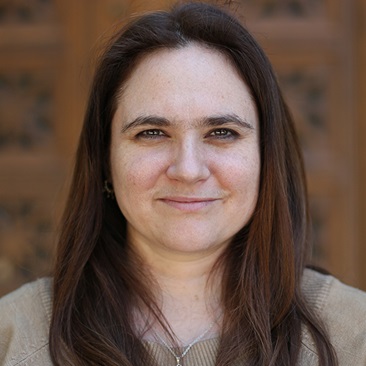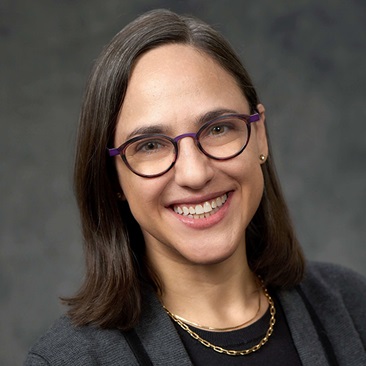Antisemitism Expert Appointed New Backer Professor of Jewish Studies
September 12, 2024
SU Arts and Sciences
Britt Tevis, assistant professor of history, brings focus on American Jewish history to the Jewish Studies Program.
There’s no avoiding the headlines reporting the resurgence of antisemitism in the U.S. and around the globe. According to the Anti-Defamation League (ADL), 24% of Americans hold antisemitic beliefs, a 2% increase since 2022, and Generation Z and Millennials are more likely to agree with anti-Jewish tropes than older generations of Americans. This information only adds to the critical need for scholars at the College of Arts and Sciences (A&S) and the Maxwell School of Citizenship and Public Affairs to delve deeper into a greater understanding of antisemitism—from its history to its implications for the U.S. today.
Bringing vast knowledge as a modern Jewish historian with a focus on American Jewish history and antisemitism in the U.S., Britt Tevis comes to Syracuse University as an assistant professor in the History Department in the Maxwell School and as the Phyllis Backer Professor of Jewish Studies in the Jewish Studies Program in A&S. The Backer professorship was established in A&S in 2020 through a $1.5 million gift from the Phyllis Backer Foundation, which supports education and medical research organizations with an emphasis on Jewish-related causes.
Tevis has had various academic appointments in her career, most recently as the Rene Plessner Postdoctoral Fellow in Antisemitism and Holocaust Studies at the Institute for Israel and Jewish Studies at Columbia University. She has a Ph.D. and a master’s degree in history from the University of Wisconsin-Madison and a law degree from the University of Wisconsin School of Law, as well as a bachelor’s degree in Jewish studies and political science from the University of Florida.
“Our program is absolutely delighted to have Dr. Tevis’s appointment as the Backer Chair of Jewish Studies,” says Zachary Braiterman, who served as director of the Jewish Studies Program during the time she was hired. “She brings invaluable expertise in the history of law and civil rights as reflected in the American Jewish experience, and she will contribute new and rich dimensions to the program.”
Tevis is eager to introduce modern Jewish history to students through coursework that will include topics such as the history of antisemitism in the U.S., Jews and American popular culture, Jews’ efforts to secure legal rights, the challenges of integrating into non-Jewish citizenries, changes to religious practices and traditions, and the array of Jewish American culture.
According to Tevis, studying American Jewish history and antisemitism as part of larger U.S. history sheds light on critical aspects, as the gap between the American ideal of equality, per the Declaration of Independence, and the country’s persistent denial of political and civil rights for certain segments of the population remain a fundamental tension in U.S. history. The interaction between degrees of discrimination and prosperity continues to describe the American Jewish experience from when Jews first arrived in North America in the 17th century through the present.
“Many people struggle to define the boundaries of antisemitism,” she says. “Like most topics, understanding antisemitism requires studying the past so as to be able to understand its origin, particular characteristics and varied dimensions.”
Tevis intends to add to the intellectual vibrancy of the history department and the Jewish Studies Program through her teaching, research and publications. She is awaiting her forthcoming anthology, “Sanctioned Bigotry: A Documented History of Antisemitism in the United States,” in 2025. And, she is currently completing a book about Jewish emancipation lawyers who worked to secure rights for American Jews in areas like immigration, labor and civil rights but were overlooked by historians who painted them as political radicals. Tevis also has a long list of research interests examining Jews and U.S. law as she begins this next chapter of her career.
“To my mind it is impossible to overstate the importance of historical knowledge. History teaches us why our world functions as it does, illuminating how people made given choices and shaped later developments,” she says. “I am overjoyed to join the incredible faculty here as the Backer Professor of Jewish Studies and embrace the opportunity to uncover underdeveloped and undertheorized dimensions of American Jewish history.”
By Caroline K. Reff
Related News
School News

Sep 5, 2024
School News

Aug 9, 2024

